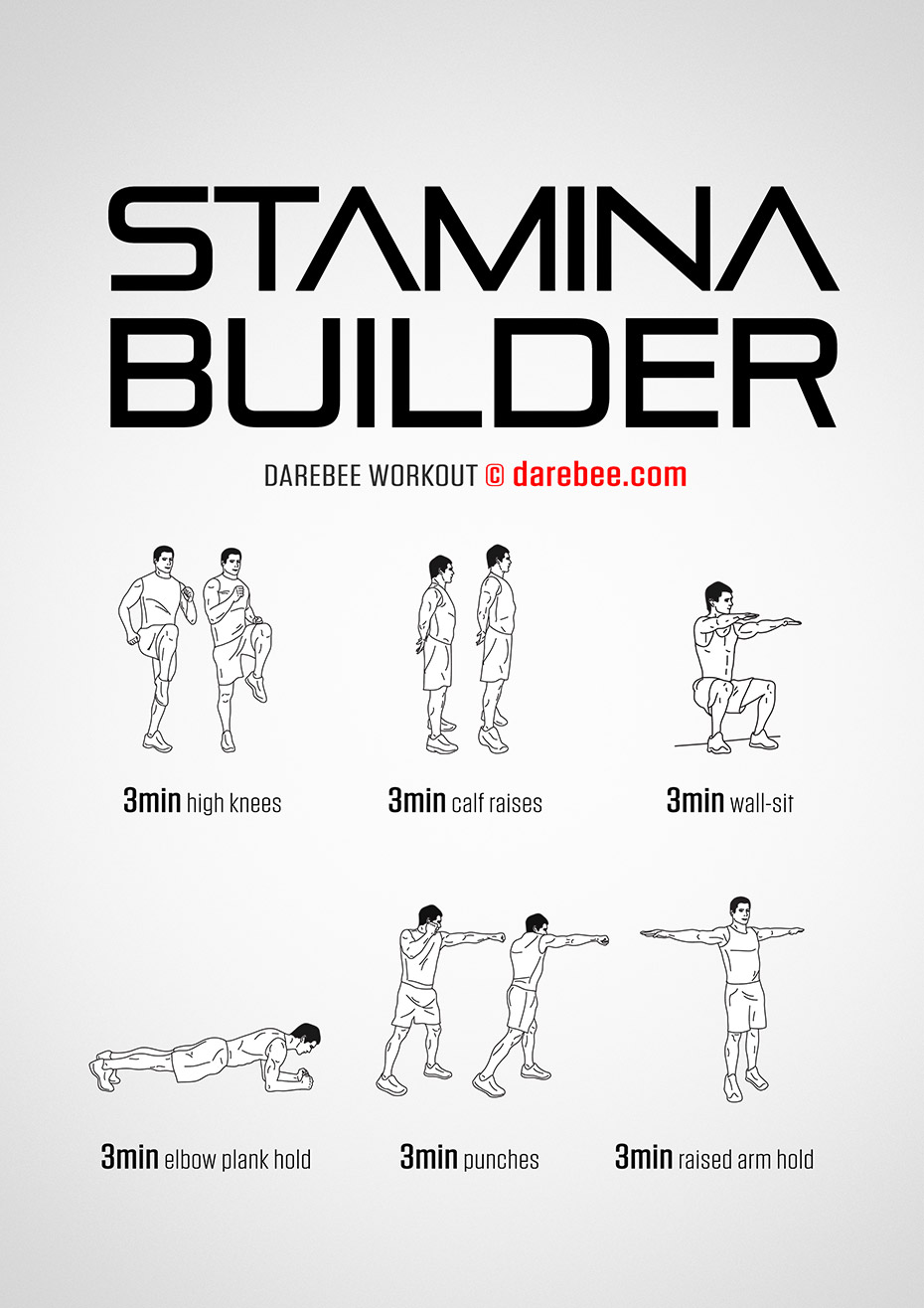Are you tired of feeling out of breath after climbing a few stairs? Do you want to boost your energy and keep up with your busy day without feeling drained?
Improving your fitness and stamina is the key to feeling stronger, more confident, and ready to take on any challenge. You’ll discover simple, effective steps that you can start using right now to build your endurance and enhance your overall health.
Keep reading, and you’ll learn how small changes can lead to big results in your fitness journey.

Credit: valorfitness.com
Benefits Of Enhanced Fitness
Improving your fitness and stamina brings many positive changes to your life. It helps your body work better every day. Feeling stronger and more active becomes normal. Your health improves step by step, making daily tasks easier and more enjoyable.
Better fitness also supports your mind and helps protect your body from illnesses. The benefits go beyond just looking good. They affect how you feel, think, and live.
Boosted Energy Levels
Exercise improves how your body uses oxygen and nutrients. This makes your muscles work longer without getting tired. You feel less tired during the day. Simple activities like walking or climbing stairs become easier. More energy helps you stay active and enjoy your time.
Improved Mental Health
Physical activity releases chemicals that lift your mood. Stress and anxiety reduce after regular exercise. Your sleep quality improves, making you feel rested. Exercise also helps you focus better and think more clearly. Feeling good in your mind supports a healthy lifestyle.
Stronger Immunity
Regular fitness routines help your immune system fight germs. Your body recovers faster from illness. Exercise increases white blood cells that protect you from infections. Staying active lowers the risk of chronic diseases. A strong immune system keeps you healthy longer.
Key Components Of Fitness
Improving fitness and stamina needs focus on several key parts of fitness. Each part helps your body work better and stay healthy. Understanding these parts guides your exercise and daily habits. This makes your fitness plan stronger and more balanced.
Cardiovascular Endurance
Cardiovascular endurance is the ability of your heart and lungs to work hard for a long time. It helps you run, swim, or cycle without getting tired quickly. Good endurance means your body uses oxygen well. Activities like jogging, brisk walking, and cycling build this endurance. Strong cardiovascular health reduces risk of many illnesses.
Muscle Strength
Muscle strength is how much force your muscles can make. It helps you lift, push, or carry heavy things easily. Strong muscles protect your joints and improve posture. Weight lifting, push-ups, and resistance exercises build muscle strength. This strength supports daily tasks and reduces injury risks.
Flexibility And Balance
Flexibility means how well your muscles and joints move. Balance is your body’s ability to stay steady. Both help you move without pain or falling. Stretching, yoga, and balance exercises improve these skills. Better flexibility and balance make daily activities easier and safer.
Effective Exercise Strategies
Effective exercise strategies help improve both fitness and stamina. They boost your energy and make daily tasks easier. Regular workouts build strength, endurance, and flexibility. Choosing the right exercises keeps your routine fun and balanced.
High-intensity Interval Training
High-Intensity Interval Training (HIIT) mixes short bursts of intense activity with rest. This method burns calories fast and improves heart health. HIIT workouts last 15 to 30 minutes. They can be done with running, cycling, or bodyweight exercises. This training raises stamina quickly and fits busy schedules.
Strength Training Routines
Strength training builds muscle and supports joints. Use weights, resistance bands, or bodyweight moves. Focus on major muscle groups like legs, back, and arms. Perform exercises two to three times weekly. Strong muscles help with endurance and daily activities. Proper form reduces injury risk.
Incorporating Flexibility Workouts
Flexibility workouts improve movement and reduce stiffness. Stretching, yoga, or Pilates increase joint range and ease muscle tension. Include flexibility exercises after workouts or on rest days. They help recovery and prevent injuries. Consistent stretching supports better posture and balance.
Nutrition For Stamina
Nutrition plays a key role in building stamina. Eating the right foods helps your body keep going longer. Proper nutrition fuels your muscles and brain. It supports recovery and reduces tiredness. Focus on food choices that boost energy and endurance.
Balanced Macronutrients
Macronutrients include carbohydrates, proteins, and fats. Carbohydrates are the main energy source. Choose whole grains, fruits, and vegetables. Protein helps repair and build muscles. Include lean meats, beans, and nuts. Healthy fats provide long-lasting energy. Use sources like avocados, olive oil, and fish. A good balance keeps energy steady during exercise.
Hydration Tips
Water is essential for stamina. It keeps your body cool and muscles working. Drink water before, during, and after workouts. Avoid sugary or caffeinated drinks. They can cause dehydration. For long exercise sessions, add a pinch of salt or use sports drinks. Proper hydration improves focus and delays fatigue.
Supplements That Help
Certain supplements can support stamina. Creatine helps muscles produce energy faster. Beta-alanine reduces muscle fatigue. Iron supports oxygen transport in the blood. Vitamin B12 helps convert food into energy. Always check with a doctor before starting supplements. Natural food sources are best for most nutrients.
Lifestyle Habits To Boost Energy
Boosting your energy starts with daily habits. Small changes in your lifestyle can make a big difference. These habits help your body stay active and strong throughout the day. Focus on good sleep, managing stress, and avoiding things that drain your energy.
Consistent Sleep Patterns
Sleep is the foundation of good energy. Going to bed and waking up at the same time helps your body rest well. Avoid screens at least an hour before sleep. A quiet, dark room improves sleep quality. Aim for 7 to 8 hours every night. Good sleep boosts your stamina and focus.
Stress Management Techniques
Stress uses a lot of your energy. Try simple ways to relax your mind. Deep breathing and meditation calm your body. Short walks outside can clear your thoughts. Even a few minutes of quiet time helps. Lower stress levels keep your energy steady all day.
Avoiding Energy Drainers
Some habits reduce your energy fast. Avoid too much caffeine and sugary snacks. These cause quick energy drops later. Sitting too long makes you tired and slow. Stand up and move often during the day. Saying no to extra tasks can save your energy too.
:max_bytes(150000):strip_icc()/VWF-What-is-Stamina-Definition-Tips-How-to-Improve-5085005-dffa0255d0254a098fd12d816aaf78b0.jpg)
Credit: www.verywellfit.com
Tracking Progress And Staying Motivated
Tracking progress and staying motivated are key to better fitness and stamina. Watching small wins build confidence. It helps keep focus and pushes through hard days.
Without tracking, it is easy to lose direction. Motivation can drop fast. A clear plan and support make the journey easier and more fun.
Setting Realistic Goals
Set goals that fit your current fitness level. Small steps lead to big changes. Goals should be clear and easy to measure. For example, run for 10 minutes instead of 30 at first. This keeps frustration low and success high.
Adjust goals as you improve. Celebrate each achievement. This boosts energy and keeps you moving forward.
Using Fitness Trackers
Fitness trackers help record workouts and daily activity. They show progress in real time. Watch your steps, heart rate, or calories burned. These numbers give proof of effort.
Trackers also remind you to move. Setting daily targets pushes you gently. Seeing progress over days and weeks increases motivation. It turns exercise into a habit.
Building A Support System
Friends, family, or workout groups can help a lot. They offer encouragement and share tips. Talking about struggles makes challenges easier. Celebrating wins together feels good.
Find people who share your fitness goals. Join local classes or online communities. Support turns fitness into a social and enjoyable activity.

Credit: darebee.com
Frequently Asked Questions
What Exercises Best Improve Fitness And Stamina?
Cardio workouts like running, cycling, and swimming boost stamina effectively. Strength training also enhances overall fitness. Combining both improves endurance and muscle strength efficiently.
How Often Should I Train To Boost Stamina?
Train at least 3-5 times weekly for stamina gains. Include rest days to allow muscle recovery. Consistency is key for lasting improvements.
Can Diet Affect Fitness And Stamina Levels?
Yes, a balanced diet rich in proteins, carbs, and healthy fats supports energy and recovery. Hydration also plays a crucial role in maintaining stamina.
How Long Does It Take To See Stamina Improvements?
Most people notice changes within 4-6 weeks of regular training. Progress depends on workout intensity, diet, and rest quality.
Conclusion
Improving fitness and stamina takes time and steady effort. Small steps add up to big changes. Eat healthy, stay active, and rest well every day. Challenge your body with different exercises. Keep track of your progress to stay motivated. Remember, consistency beats quick fixes.
Feel stronger and more energetic with each workout. Your body will thank you for the care you give. Start today, and enjoy a healthier, fitter life ahead.
